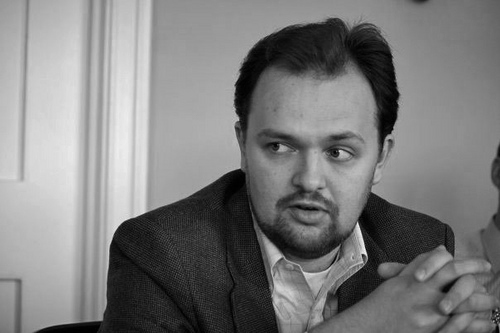BREAKING MUST CREDIT BELLE BREAKING
What if I linked to my favorite song by everybody’s favorite Australian punk band, and merely pointed out that Ross “I Would Do Anything For Love But I Won’t” Douthat is only 8 1/2 days away from misusing found alien technology, not to better the world, because he’s a selfish monster, but to better his own life by becoming infinity percent cooler?

And look, he put out some great music, in his defense, right?

But that’s not at all what Culture tech is for and I can tell you, without spoilering the 21st Century at all, that both I myself and way MOAR KNIFE MISSLES get involved, so, it all evens out.
Are you going to go on and on about The Saints like a bunch of little bitches, or what? Not that there’s anything wrong with that! Oh, wait, now I’ve like entangled myself in my own quantum wossnames, haven’t I? COMMENT IN THE NEW THREAD. If you’re going to go on and on about something do it in an interesting fashion. Don’t feed boring trolls poorly-prepared victuals. Make the trolls earn their meagre fare. Then, eventually, you may reward them with fun-size Milky Way or something. God.
UPDATE: I failed. Because I could have written the post in a comprehensible way. But I did not. OR WAS I FAILED?!
1. Look, people have been going on about whether the Jim Crow South was maybe, possibly, kinda racist for like 425 comments down there in John’s thread. IT WAS. Also, DON’T FEED LOW CALIBER-TROLLS. “But Belle, Mao Cheng Ji started it!” STFU bitch.
2. People were not enough with the loving Breakwater’s “Say You Love Me Girl,” from below. Let’s grant they just don’t like that kind of thing, which was why they didn’t like it. OK GRANTED. Why didn’t they love Shuggie Otis more? Was it…racism? Oh, no, actually. Probably it was just liking this one other kind of music that they do like. Which is fine an all but…
3. As inestimable non-trollish commenter Michael Sullivan pointed out, if this had been a male poster reminiscing about some post-punk stuff he might well have gotten 100 comments in an hour. So, was it–sexism? No, actually, people just don’t appreciate good music sometimes. So then I was listening to The Saints. And then I noticed, damn, Ross “I Would Do Anything For Love But I Won’t” Douthat looks just like that one dude in The Saints! So I suggested an humorous vignette in which Meatloaf (not “Mr. Meatloaf”; the New York Times regrets the error; like many Indonesians, Meatloaf only uses one name) was transported back in time using the technology of Iain M. Banks’ Culture. But would that have been satisfactory? No, so I had to specify that I subsequently hunted him down and killed him with knife missiles which, if you haven’t read the books, are EXACTLY WHAT THEY SAY ON THE TIN. Then people expressed variously, bafflement (here, sorry) and the objection that The Saints, being a seminal punk band, can hardly be post-punk can they, missy? (EXPECT KNIFE MISSILES.)
I don’t know why you people make everything so difficult.


